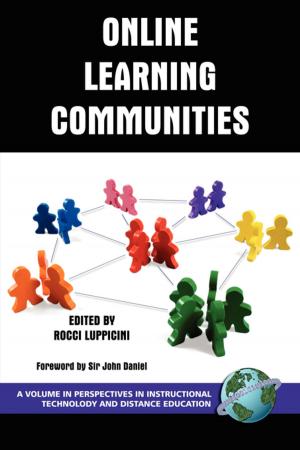Research on the Influences of Educational Policy on Teaching and Learning
Nonfiction, Reference & Language, Education & Teaching, Educational Theory, Educational Reform, Administration| Author: | ISBN: | 9781623962524 | |
| Publisher: | Information Age Publishing | Publication: | July 1, 2013 |
| Imprint: | Information Age Publishing | Language: | English |
| Author: | |
| ISBN: | 9781623962524 |
| Publisher: | Information Age Publishing |
| Publication: | July 1, 2013 |
| Imprint: | Information Age Publishing |
| Language: | English |
The 14 chapters in this book address education policy as it is being implemented in three world regions, Africa, the Caribbean, and the Middle East. The diverse authors utilize original local data, interpreting it to describe policy development and implementation across a range of nations who share commonalities but also differences. The chapters begin with the premise that policy must respond to the needs of the citizenry and to the challenges faced by each society internally as well as globally. Meeting the challenge of frequently competing existing needs while addressing educational development to prepare for future needs, is an ongoing task for policymakers. The researchers authoring the book’s chapters are aware of competing challenges and of the need for frequent revision of educational policy as well as continuing support for its implementation. They base their conclusions and the implications offered on the data while taking into account the culture within which successful and appropriate policy must be implemented. The implications have relevance for any society in the world as diversity exists everywhere so all societies are experiencing challenges generated by our interdependence with each other.
The 14 chapters in this book address education policy as it is being implemented in three world regions, Africa, the Caribbean, and the Middle East. The diverse authors utilize original local data, interpreting it to describe policy development and implementation across a range of nations who share commonalities but also differences. The chapters begin with the premise that policy must respond to the needs of the citizenry and to the challenges faced by each society internally as well as globally. Meeting the challenge of frequently competing existing needs while addressing educational development to prepare for future needs, is an ongoing task for policymakers. The researchers authoring the book’s chapters are aware of competing challenges and of the need for frequent revision of educational policy as well as continuing support for its implementation. They base their conclusions and the implications offered on the data while taking into account the culture within which successful and appropriate policy must be implemented. The implications have relevance for any society in the world as diversity exists everywhere so all societies are experiencing challenges generated by our interdependence with each other.















